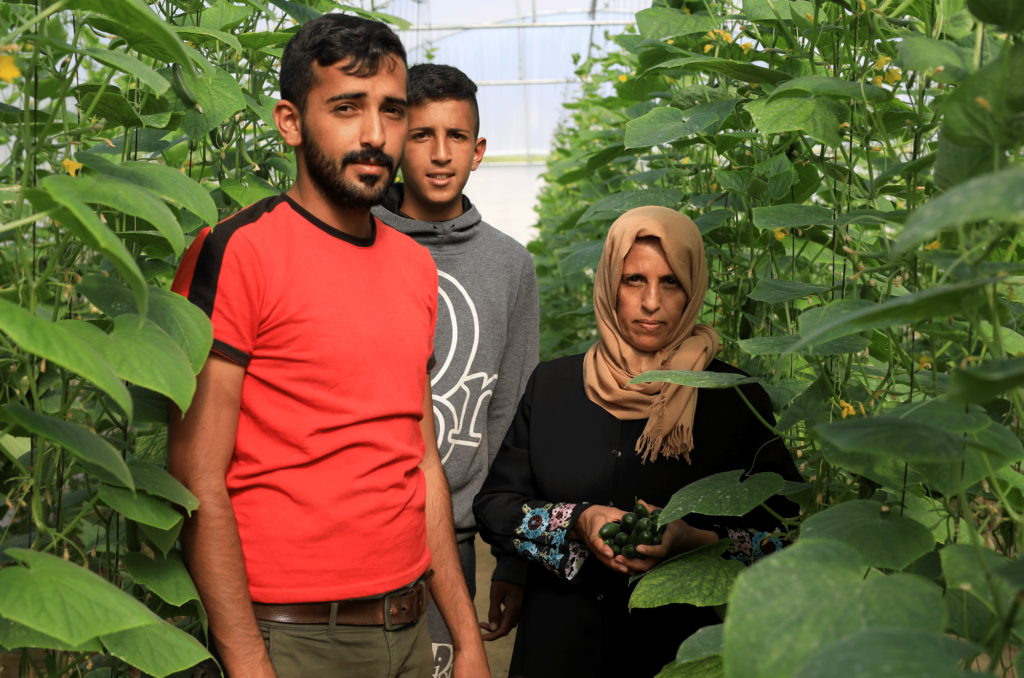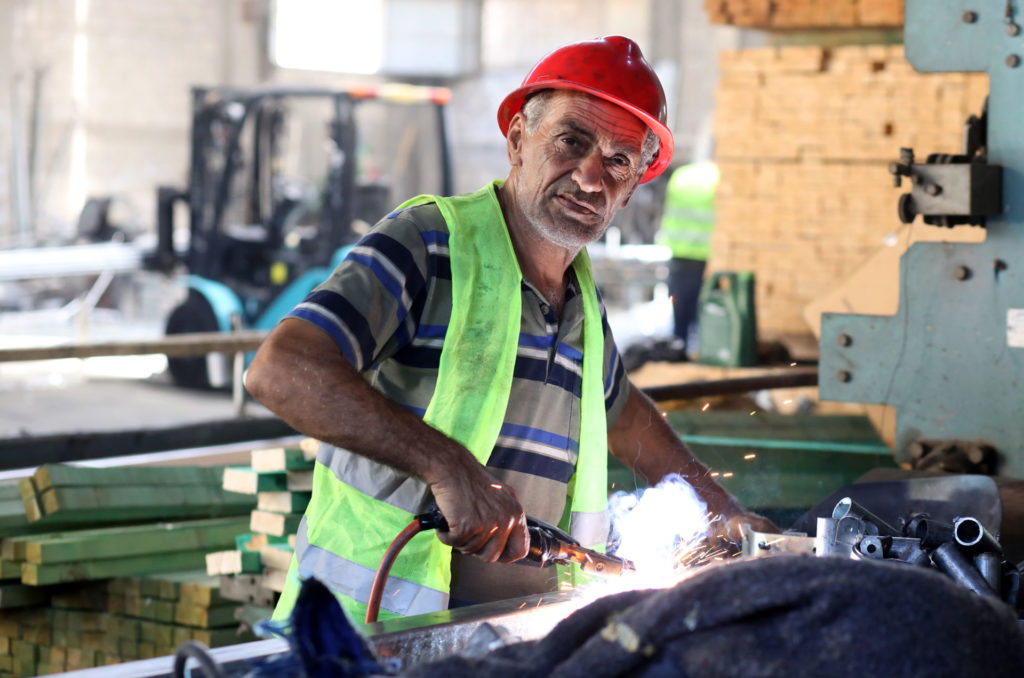Feb, 2018
In the decades since they started their work together, Magdi and Abed’s passion for organic farming is stronger than ever, despite the challenges of an on-going blockade that has crippled the economy.
Back in 1997, Magdi Dabour was hard at work on his farm and when Anera’s former country director Tom Neu contacted him with a once-in-a-lifetime invitation. “He asked me, ‘Magdi, do you want to go to the US?’” It was a to attend a training for farmers from around the globe who believe in the value of organic farming and its importance for the body and the environment. Excited at the opportunity, Magdi said “Yes!”
After six months of intensive training with 40 other organic advocates from around the world, Magdi hit the road back to Gaza with his certificate from Santa Cruz University and a lot of practical knowledge to pass on in his community. Magdi’s vision for his ideal farm intersected with a fellow Gaza farmer, Abel Minem, who had worked in a research center on similar subjects in Italy.
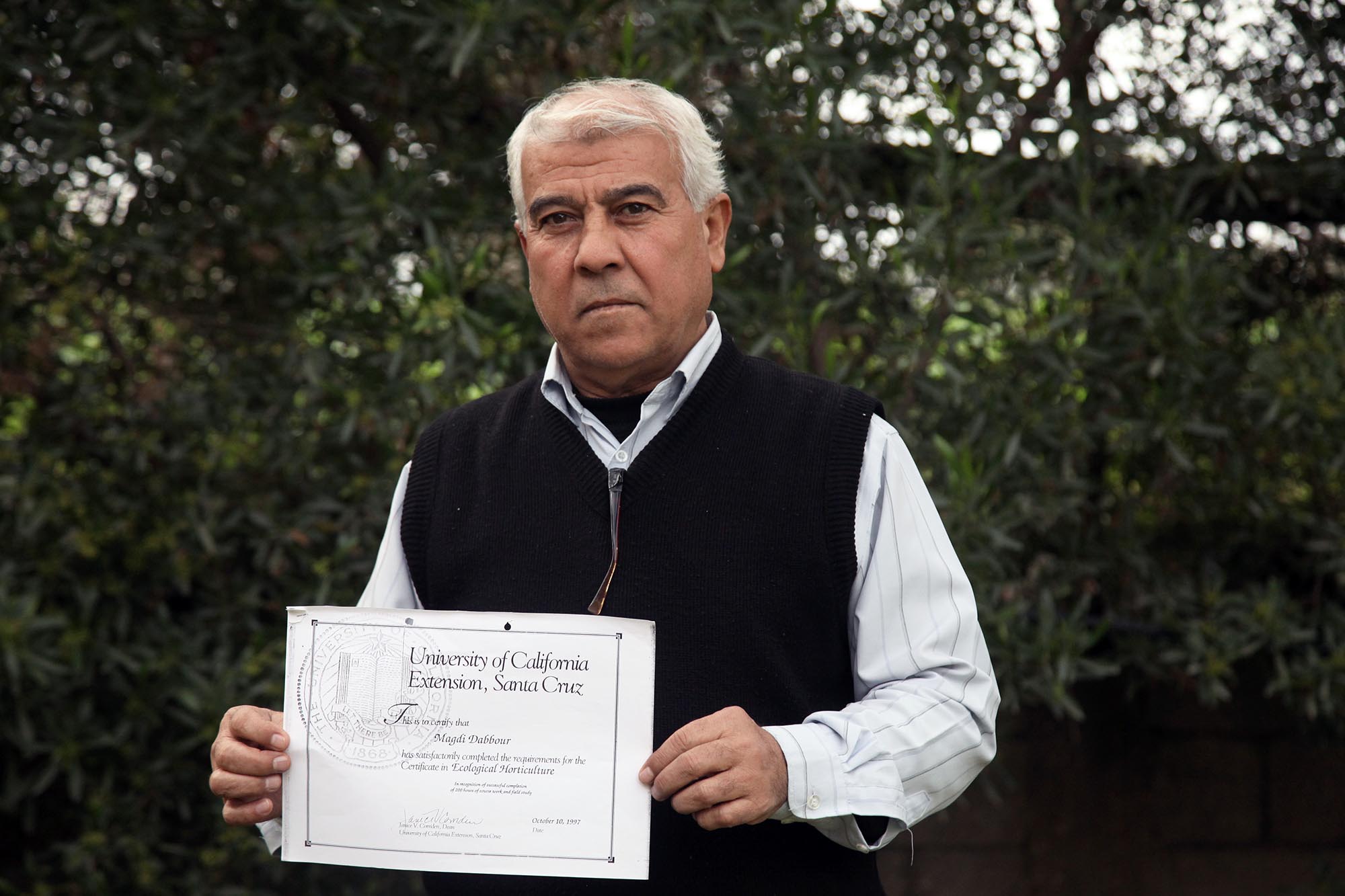

From the flourishing farms of California to the beautiful fields of Italy, their idea was born. They decided to build the “Safe Agriculture Society” in Gaza with the goal of expanding organic farming and lobbying with other like-minded organizations.
As with many things in Gaza, their path wasn’t easy. First, they needed to rent a plot of land. Then they had to get community support. Next they needed to secure different sources of local and international funding. And, finally, they needed to open a store to sell their produce. That store is currently located in Beit Hanoun, northern Gaza.
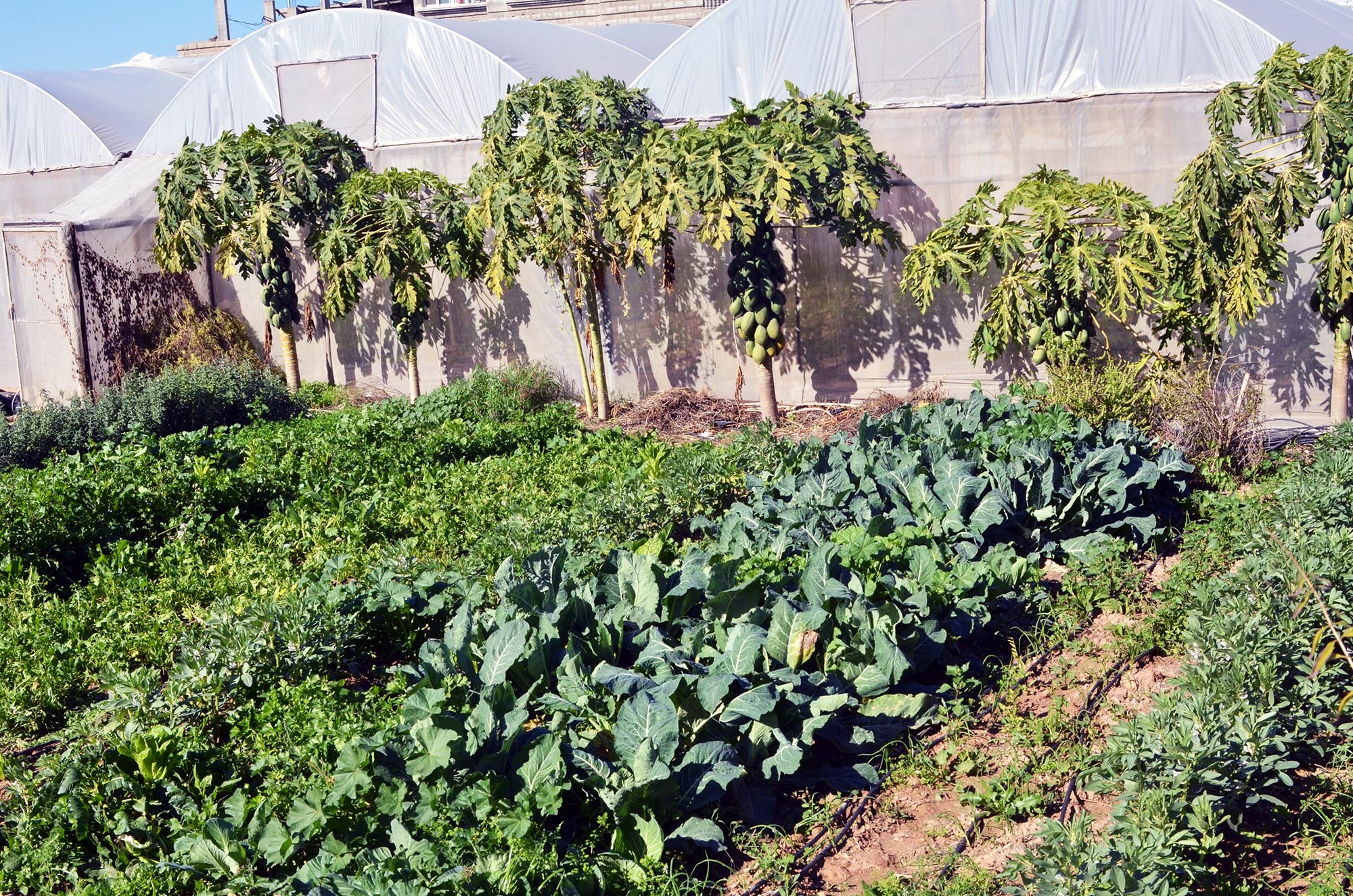

Today, Magdi and his partner Abed El Miem are still devoted to their organic farm. Magdi says they are getting a little too old now to work daily in the fields. So, he and Adel have been training and mentoring two young agronomists who have been shadowing them for the past couple of years.
“This farming system needs support,” says Magdi. “In the old days people only knew about natural fertilizers. When they were introduced to chemical fertilizers and pesticides, farming culture began to change and farmers started using them to grow bountiful harvests but ultimately unhealthy produce,” says Magdi, as he and Abed picked beautiful heads of organic cauliflower from their fields. “On our farm, we use organic compost made from dried leaves.”
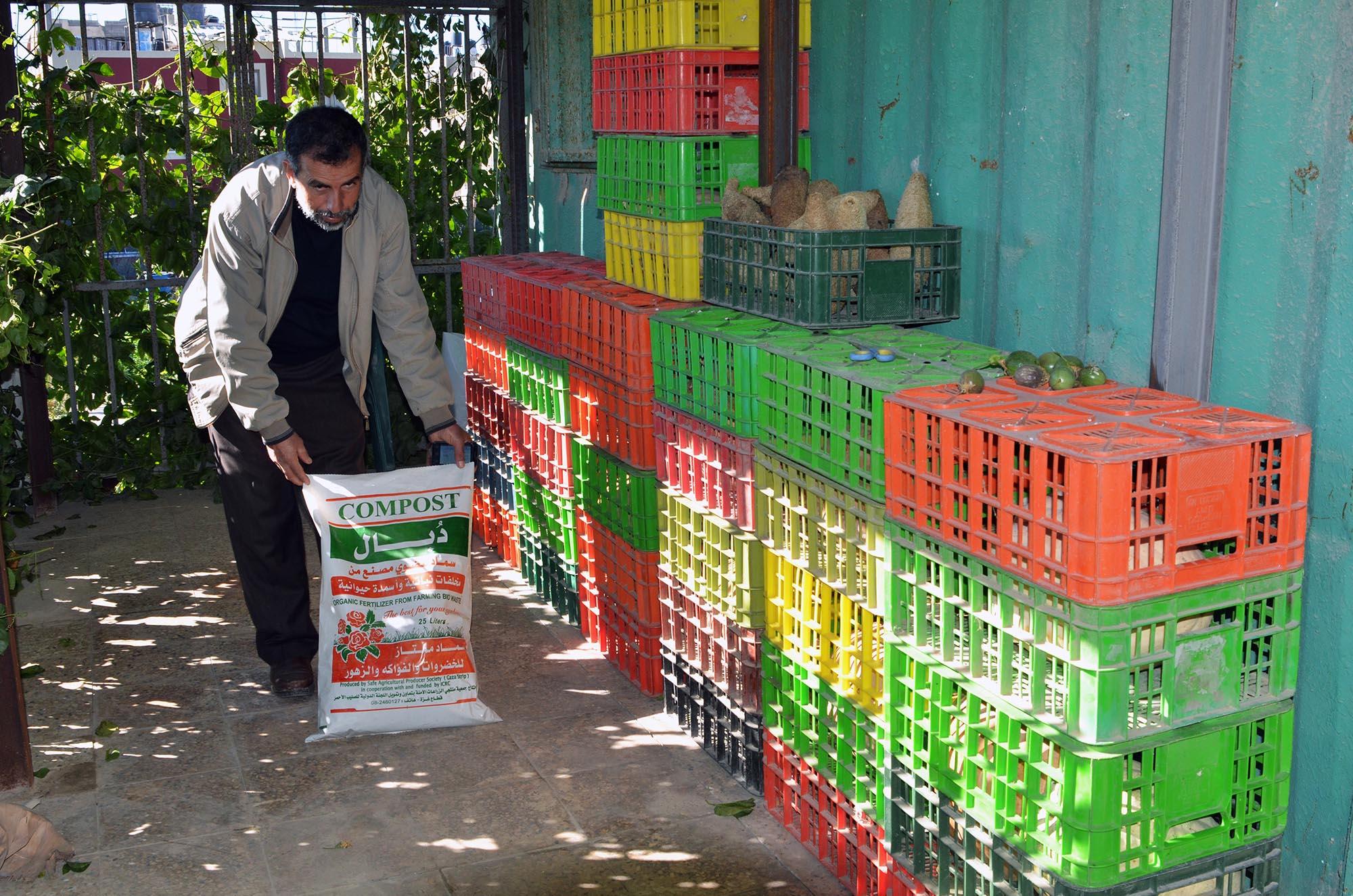

In the decades since they started their work together, Magdi and Abed’s passion for organic farming is stronger than ever, despite the challenges of an on-going blockade that has crippled the economy.
"The siege has actually provided a good opportunity for us to convince our fellow farmers that it's possible to grow produce without using expensive and damaging pesticides and chemical fertilizers," says Abed.
Twenty years after Anera’s small role in Magdi’s life, the invitation to study in California, we have recently installed a large pond to collect water for drip irrigation on Magdi’s farm. “Another great thing about organic farming is that water resources are better managed. This is especially important in Gaza, where water is a very precious commodity.”

